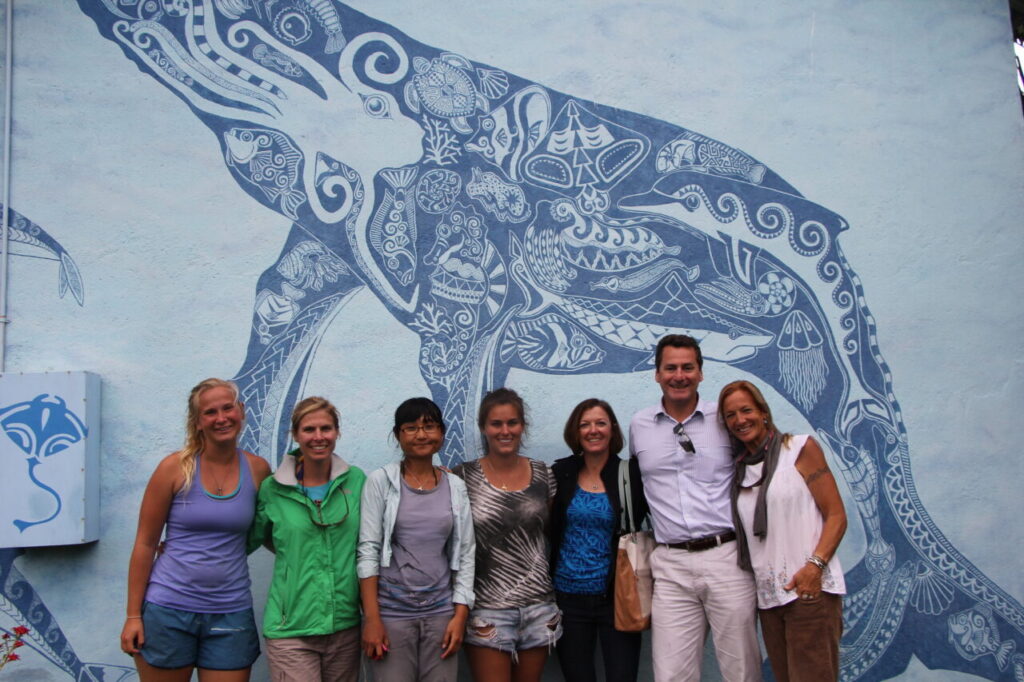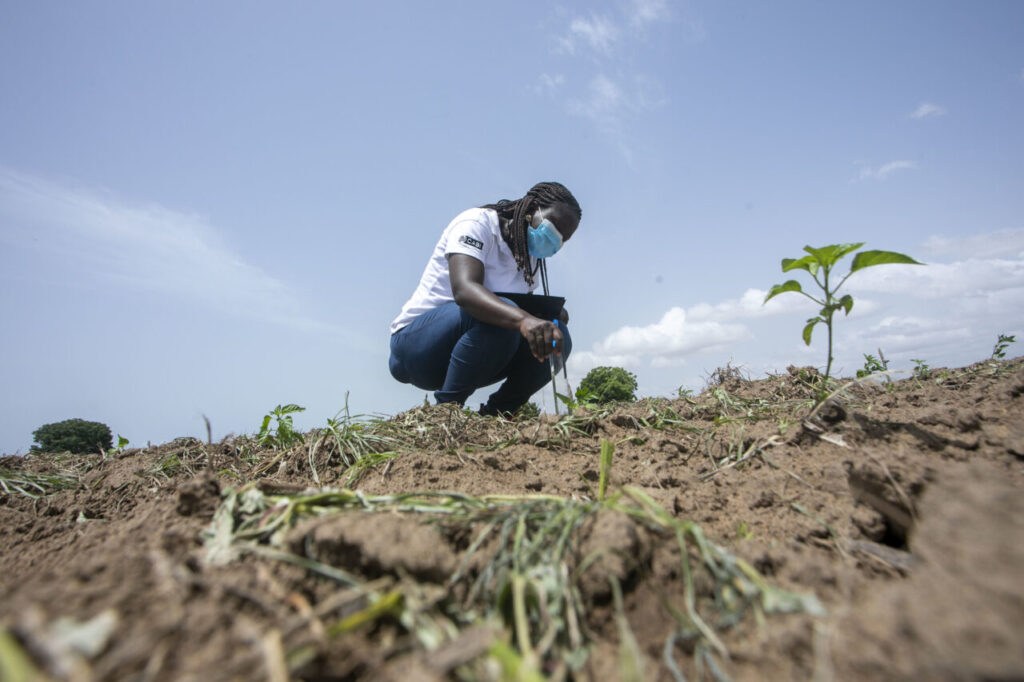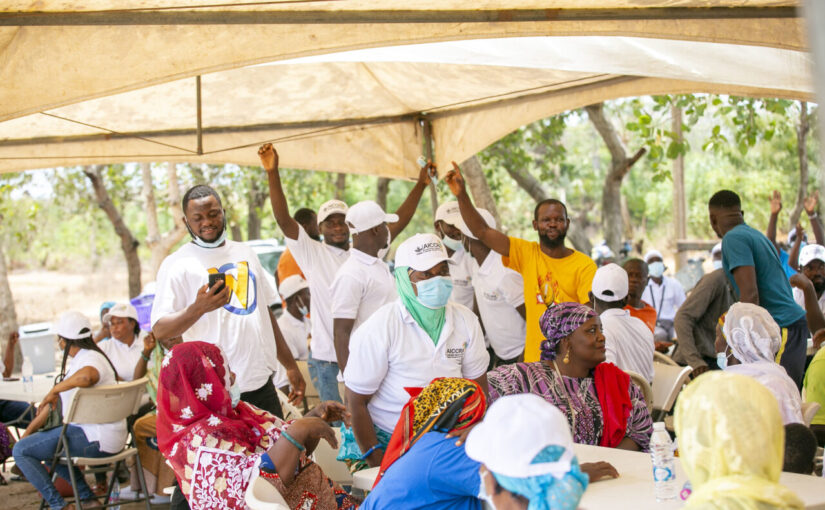This is the second blog arising from work on IGDC’s Decolonising Research Podcast series. How can researchers decolonise their work? What steps can be taken in terms of partnerships, methods, and impact? And what challenges does decolonisation raise for researchers?
Researchers are increasingly encouraged to decolonise their research. This is particularly true in the field of development studies, but is an issue with which all disciplines are engaging. But what does decolonising research mean in practice? How can ideas developed over decades of theoretical debate be applied to real-world settings and built into realisable research projects?
To address these questions, the IGDC, with colleagues from the Federal University of Bahia in Brazil, is producing a podcast. With contributions from researchers from York, Brazil, and beyond, each episode will explore some of the challenges of decolonising research and address ways of working through them.
This blog post provides background to that podcast by raising some of the key questions our expert contributors will tackle. This post examines the three areas around which decolonising concepts can be applied and which are covered in the episodes: research partnerships; methods; and impact. There are no firm boundaries between them and we do not intend to offer a prescriptive or one-size-fits-all guide. Instead, our podcast invites researchers from across disciplines – both within and beyond academia – to consider how they can work towards decolonising their research practices and support others trying to do the same.
Theme One: Decolonizing global development research partnerships
Partnerships between the Global North and Global South are often characterised by colonial asymmetries. Imbalanced power dynamics perpetuate colonial tropes rooted in a dichotomy between the researcher and the researched, between the institution and the field. Decolonising research partnerships means working to rebalance these relationships and make them more equitable through co-creation and co-ownership.
Co-creation means involving Global South partners in decision-making processes. This happens on the farther end of a “spectrum of involvement”. In some forms, such as Thai Baan methodology, non-academic partners drive the research process while academics facilitate and support it. Co-creation begins with identifying research questions that the local community wants answered. Global South partners should also have a decisive say over what research methods will be most effective and culturally suitable. And there should be a mechanism by which the local community can evaluate the project’s outcomes according to their own priorities and experiences.
Co-ownership in decolonising research refers to sharing the ownership of research and its output with partners. All researchers should consider co-authorship where possible and acknowledge contributions – no matter their form – from all partners. Findings must also be made accessible to the community in a format and language they understand and can use. This may involve creating non-textual outputs like seminars, videos, public displays, or dissemination via cultural brokers.
Arrangements on co-creation and co-ownership can be codified in a mutually-agreed Memorandum of Understanding, delineating the rights and responsibilities of all partners and establishing objectives and timeframes. These agreements should be established early on but include some flexibility. There should also be regular intervals when participants can reflect on their partnership and mechanisms for ongoing project evaluation.

Theme Two: Participatory and arts-based methods for decolonizing global development
Decolonising research involves using heterodox and creative methods to engage participants, to gather and analyse information, and to generate and disseminate findings. It involves a rejection of supposedly ‘objective’ quantitative data and empirical evidence as the only foundation of sound research and also encourages a move away from established social scientific methods like surveys and interviews. Community-based participatory research (CBPR) has become an increasingly common method in research, but decolonising research takes this as a starting point and goes even further to engage and understand non-European cultures and knowledges.
Culturally-appropriate arts-based methods enable people to express their knowledge, emotions, and thoughts through creative activities. This facilitates the communication of information inaccessible to conventional methods and includes people in the research process who might otherwise be excluded by established practices. Greater engagement in turn enables local people to have more meaningful influence over a project, shaping its working concepts, priorities, and actions, whilst generating new information. Community engagement is not seen as a box-ticking exercise and something to add on after the research is done but is integral to the research process, from conception onwards.
Examples of alternative methods could include: participatory theatre; artwork; song or poetry; video journals; drawing maps or visual diagrams; and communal walks around a community or territory. Such methods can: express how a community perceives the problems it faces; convey how individuals feel about certain issues; establish how people understand political and social structures and challenges; prompt self-evaluation and reflection; and elicit community-appropriate solutions to problems the community identifies. These forms of engagement can have a utility whose local value is greater than that offered by conventional academic publications and datasets.
The ECLIPSE project provides a good example of where such methods have been used effectively.
Theme Three: Decolonising impact work
Impact refers to the effect research has beyond academia. Typically, this concentrates the benefits of research in the Global North, with little attention given to what the Global South can gain. In contrast, decolonised research can be seen first and foremost as a resource for the community in which it took place.
Hawaiian geography researcher Renee Louis has stated emphatically that “If research does not benefit the community by extending the quality of life for those in the community, it should not be done.” This benefit must be identified before any research takes place, by working with local communities to determine how a project can serve their political, social, or other priorities.
To generate useful outputs, researchers wishing to maximise impact can triangulate their research questions by considering: 1. What current theoretical debates exist? 2. What do non-academic partners want to know? And 3. What public and institutional projects can be served by the research? This approach helps maximise the political and social utility of research for the community it concerns. It is a significant divergence from the standard model of modern research which is predicated more on a two-part consideration: 1. Is there a “gap in the (European) literature” that can be filled; and 2. Will this research have a benefit to the researchers’ wider community?
Because of the way it directly addresses local needs and concerns, decolonial research can have an innately transformative tendency. One way this applies is by generating research that can be used to campaign for local, regional, or national change by lobbying policy-makers. This can stray into contentious territory when research impact has a political function that challenges the status quo, and researchers may take on the role of “researcher-activists”.
By reconceptualising research to serve the needs of Global South communities, researchers can go a small way to reversing the colonial extraction that characterised research for generations. By supporting valued impacts, they can also work to heal the dynamics of distrust and disinterest that have sometimes marked indigenous attitudes towards researchers.

Challenges to Decolonising Research
This podcast does not shy away from the fact that decolonising research is difficult. Instead, it will draw attention to some of the main challenges researchers are likely to face when decolonising their work. For instance, how is a “community” to be defined and represented without replicating European norms or established hierarchies? How can we plan for the added and unpredictable costs involved in decolonised research, and can these be accounted for in research proposals? And how do established regulations and practices need to change to accommodate things like co-ownership and “relational” or “downward accountability”?
By reflecting on the first-hand experience of our contributors, this podcast will present ways researchers can think through these obstacles. Throughout, we will bear in mind that decolonising research is a process, not an end-point, and that these obstacles are substantial but not insurmountable and may be seen as opportunities as well as challenges.

